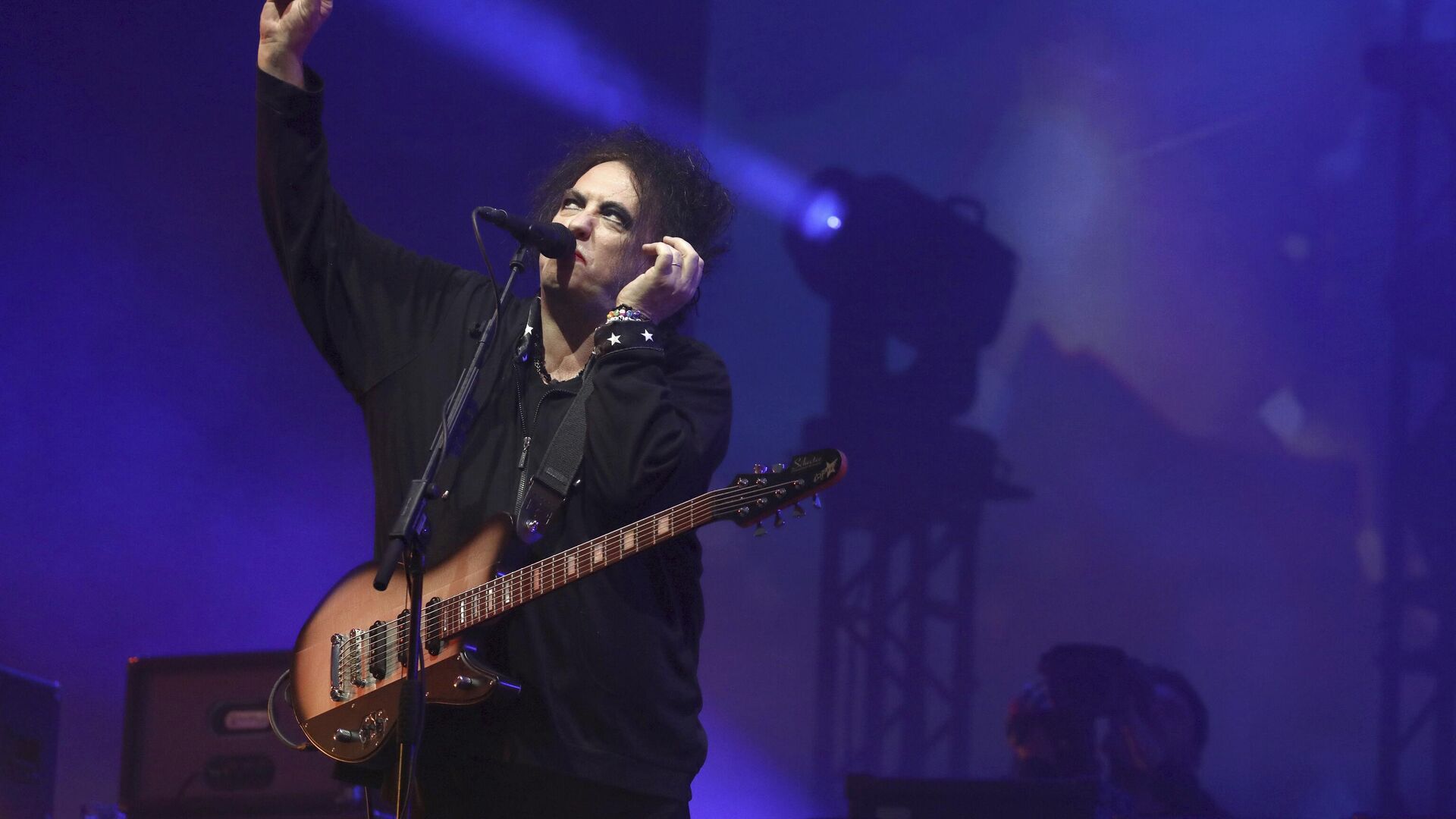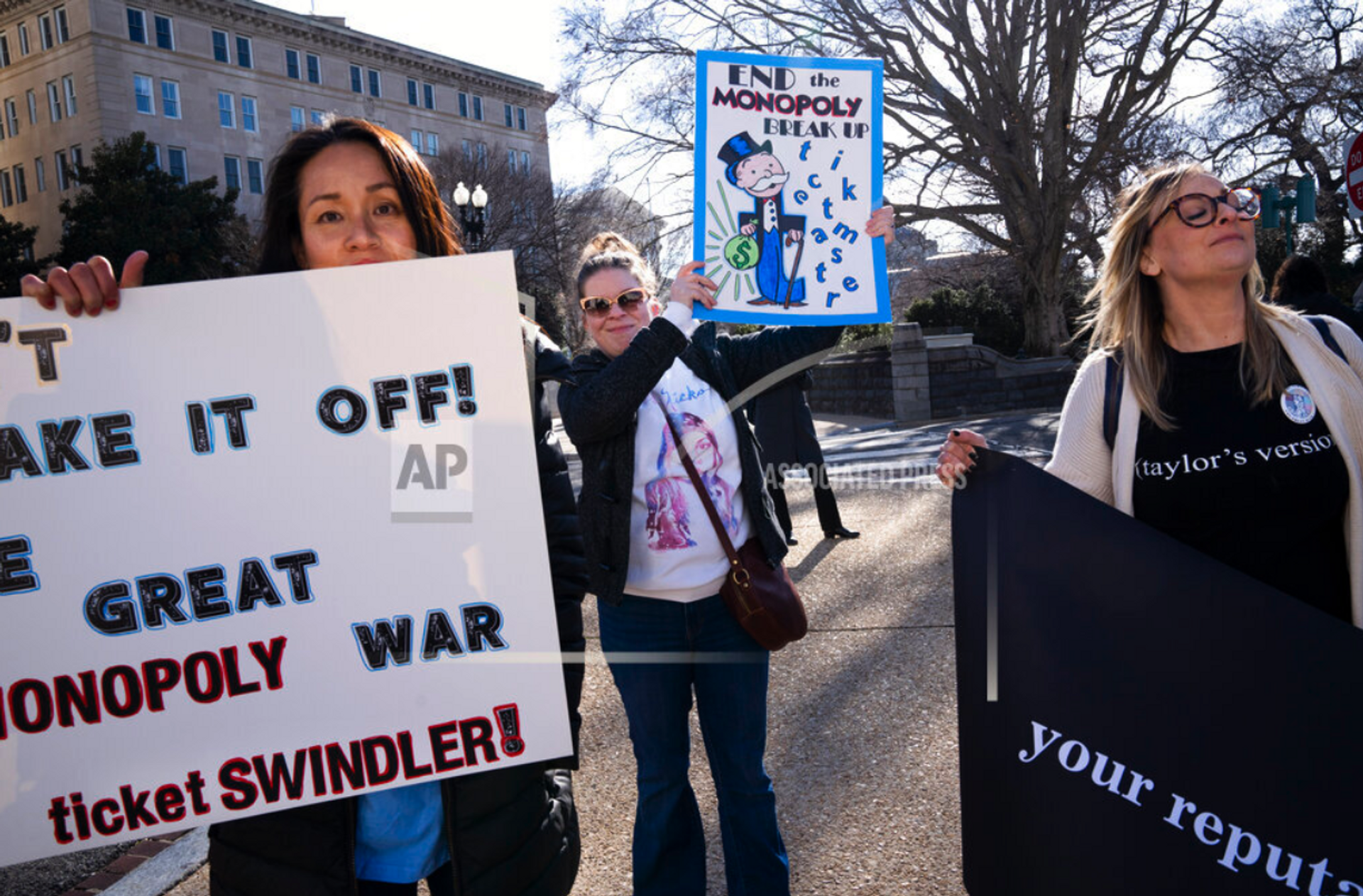The Cure’s Robert Smith ‘Sickened’ by Over-the-Top Ticketmaster Fees as US Tour Goes on Sale

© AP Photo / Grant Pollard
Subscribe
Musicians like Bruce Springsteen and Taylor Swift have been known to use Ticketmaster’s dynamic pricing system in their ticket sales. Smith says that system, which can surge a single concert ticket to thousands of dollars, is a “greedy scam”.
Robert Smith, a member of the 80’s British rock band The Cure, is calling out Ticketmaster for their service fees, blasting the ticketing company for using sickening methods to surge prices.
The band purposely priced tickets for their upcoming North American tour as low as $20 in some cases after promising to make their shows affordable for fans. However, fans later revealed that they had a service fee of $11.65, a facility charge of $10, and a processing fee of $5.50 slapped on to increase price totals.
So @thecure and @RobertSmith wanted to keep ticket prices at a reasonable level for fans on their upcoming North American tour dates. Of course @Ticketmaster absolutely rinsed them with ridiculous extra charges
— Tim Burgess (@Tim_Burgess) March 16, 2023
wtf even is a service fee or a facility charge or processing fee?? pic.twitter.com/jsgspXnifj
“I am as sickened as you all are by today’s Ticketmaster ‘fees’ debacle. To be very clear: the artist has no way to limit them. I have been asking how they are justified. If I get anything coherent by way of an answer I will let you all know,” Smith wrote on Twitter.
“We had final say in all our ticket pricing for this upcoming tour, and didn’t want those prices instantly and horribly distorted by resale,” Smith tweeted on Wednesday. “We were told ‘in North America the [ticket] resale business is a multi-billion $ industry.”
“We didn’t agree to the ‘dynamic pricing’/‘price surging’/‘platinum ticket’ thing…” tweeted Smith. “It is a greedy scam – and all artists have the choice not to participate… if no artists participated, it would cease to exist.”
Ticketmaster has since offered to partially refund some of those fees, according to Smith, who tweeted out the good news to his fans on Thursday.
But this is not the first time Ticketmaster has drawn ire.
The company, which pulled in a revenue of $12.3 billion last year, experienced chaotic presale numbers in November 2022 for a Taylor Swift tour. Fans who were given presale codes and designated purchase times were still pushed out of the queue and told to wait for hours so they could buy a ticket that was being sold for hundreds of dollars over retail.

Amy Edwards, of Silver Spring, Md., left, Tracy Budrow, of Fort Belvoir, Va., and Jenn Landry, of Houston, protest Ticketmaster, Tuesday, Jan. 24, 2023, on Capitol Hill in Washington.
© AP Photo / Jacquelyn Martin
The problem, however, has been persistent since Ticketmaster’s 2010 merger with the company Live Nation, which gave Ticketmaster a monopoly on sales. Artists face an issue too, because many venues or stadiums have exclusivity deals with Ticketmaster, forcing fans to purchase through the company as opposed to a possibly fee-free music hall.
The Taylor Swift ticket sales debacle even called the attention of the US Justice Department which reportedly opened an antitrust investigation into the company back in November. Since then, a Senate Judiciary subcommittee has urged the DOJ to continue their investigation as they are concerned Ticketmaster holds a damaging monopoly power.
“We don’t go back to bad restaurants. If you have a bad restaurant experience, you leave because there’s 20 others that you can go to,” said Krista Brown, a senior policy analyst at the American Economic Liberties Project (AELP). “But when you go to Ticketmaster, you prepare for a horrible experience. And you are also prepared to have to do it again and again.”

